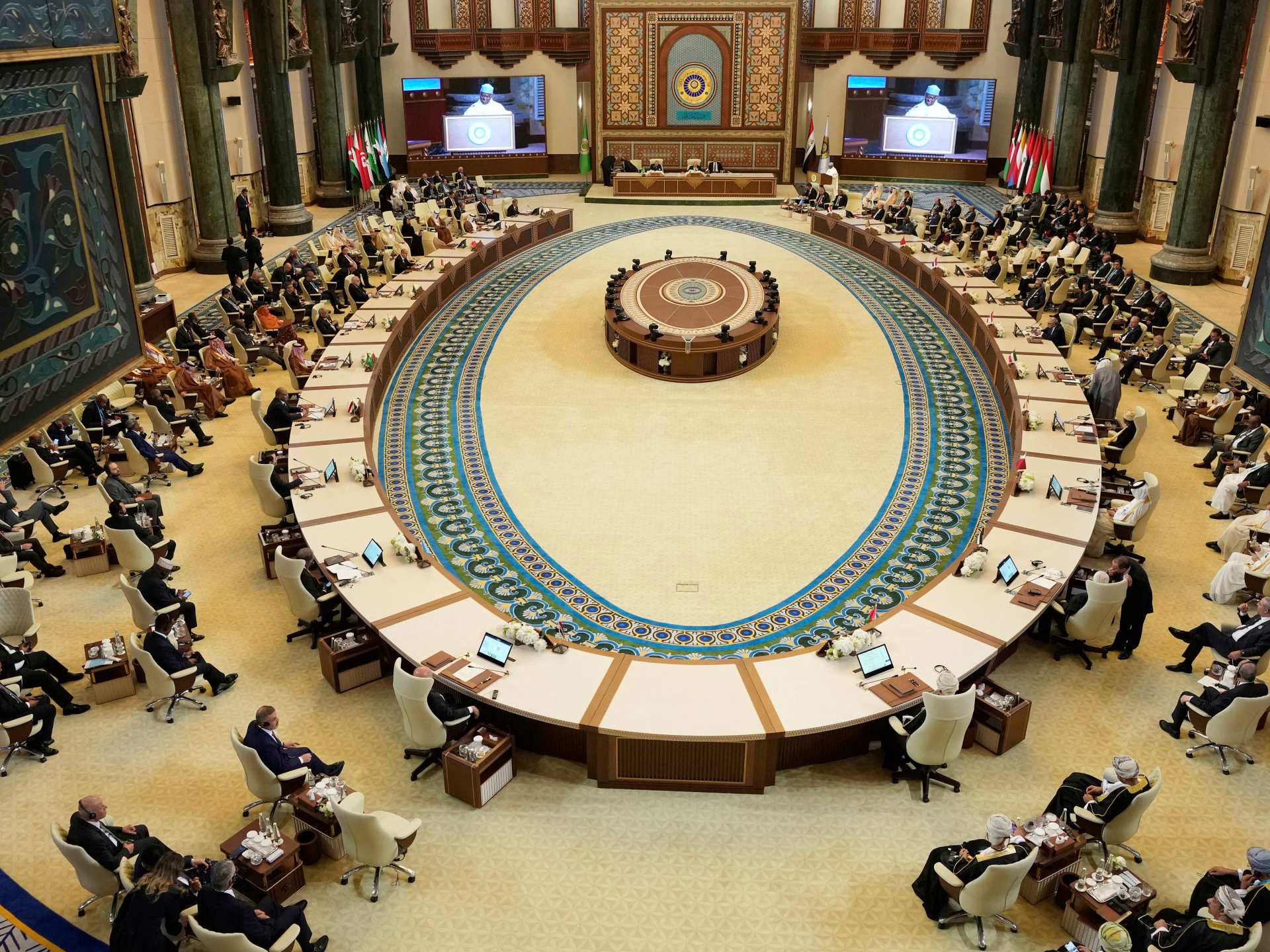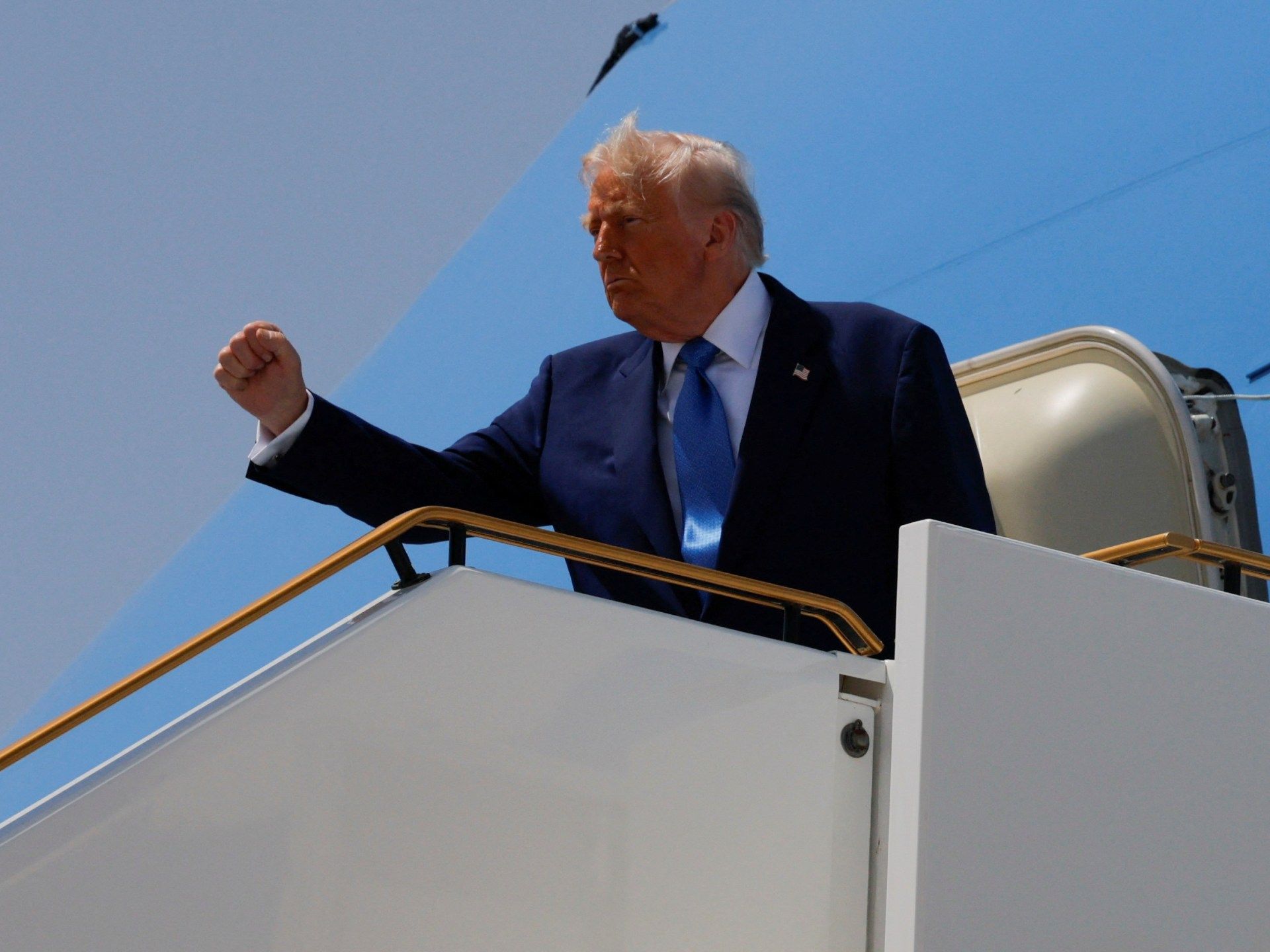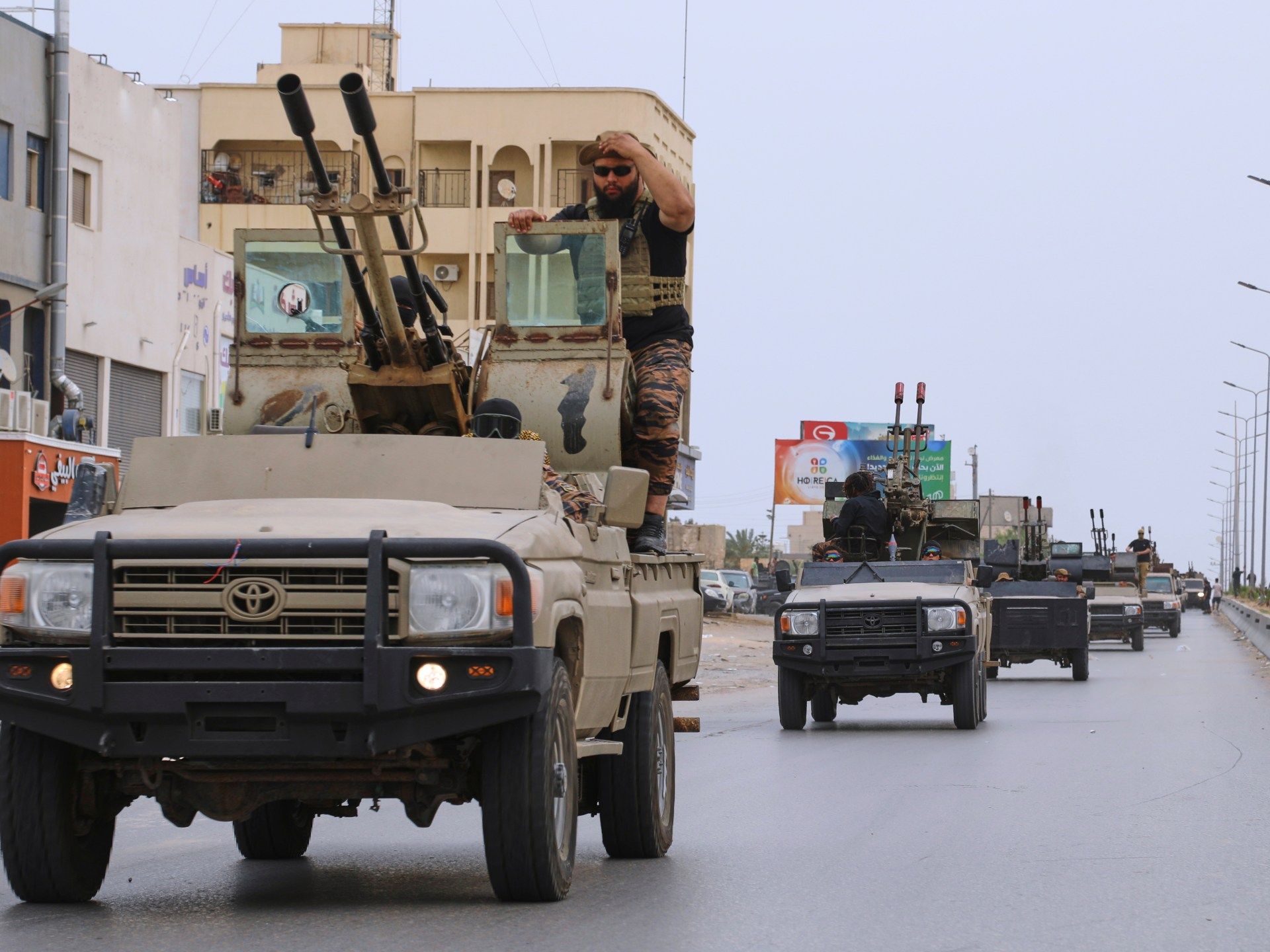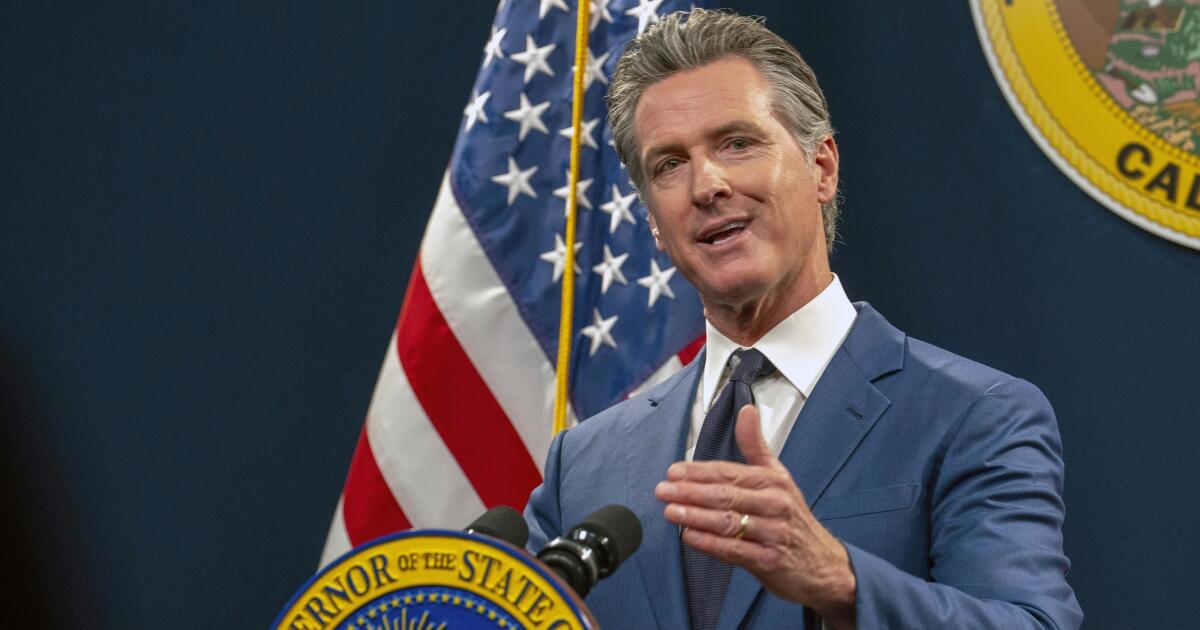Arab League calls for funds to rebuild Gaza at summit in Baghdad | Israel-Palestine conflict News
Arab leaders have urged the international community to fund their plan to rebuild the Gaza Strip after United States President Donald Trump reiterated a proposal to take over the Palestinian territory.
An Arab League summit held on Saturday in Baghdad said in its final statement that it urged “countries and international and regional financial institutions to provide prompt financial support” to back its Gaza reconstruction plan.
“This genocide [in Gaza] has reached a level of ugliness unparalleled in all conflicts in history,” Iraq’s Prime Minister Mohammed Shia al-Sudani said in his opening speech at the 34th Arab Summit, which was dominated by Israel’s genocide in Gaza.
He said Iraq backed the creation of an “Arab fund to support reconstruction efforts”, adding that Iraq will contribute $20m towards the fund and another $20m for Lebanon, which has also been in conflict with Israel.
The Iraqi prime minister said Baghdad rejects “the forced displacement of Palestinians”, calling for an end to “the massacres in Gaza, the attacks on the West Bank and the occupied territories”.
“We have called, and continue to call, for serious and responsible Arab action to save Gaza and reactivate the UNRWA,” he said, referring to the UN body for Palestinian aid.
Saturday’s talks in the Iraqi capital came only a day after Trump completed his Middle East tour, triggering hopes of a ceasefire and the renewal of aid delivery to Gaza.
‘Carnage unfolding in Gaza’
United Nations chief Antonio Guterres and Spanish Prime Minister Pedro Sanchez – who have sharply criticised Israel’s genocide in Gaza – were guests at the summit.
“We need a permanent ceasefire now, the unconditional release of the hostages now, and the free flow of humanitarian aid ending the blockade now,” Guterres said.
Spain’s Sanchez said the humanitarian crisis in Gaza must end “immediately and without delay”.
“Palestine and Spain are working on a new draft to be presented to the United Nations, where we are demanding Israel to end the unjust humanitarian siege laid to Gaza and to allow for the unconditional delivery of relief aid into Gaza”, he said.
He also said there must be “more pressure on Israel to end the carnage unfolding in Gaza by all the conceivable means, namely the tools available under the international law.”
“And here, I would like to announce that Spain will present a proposal to the General Assembly for the International Criminal Court to examine Israel’s compliance with the delivery of relief aid into Gaza,” the Spanish prime minister added.
In March, Israel ended a ceasefire reached with Hamas in January, renewing deadly attacks across Gaza and forcing a blockade of food and other essential items. In recent days, Israel has intensified its offensive, as tens of thousands of Palestinians are forced to starve.
At a preparatory meeting of the Arab League summit, Iraqi Foreign Minister Fuad Hussein said they will try to endorse decisions that were made at their meeting in Cairo in March to support Gaza’s reconstruction as an alternative to Trump’s widely condemned proposal to take over the enclave.
During his visit to Qatar, Trump on Thursday reiterated that he wanted the US to “take” Gaza and turn it into a “freedom zone”. Earlier this year, he caused an uproar by declaring that the US would turn Gaza into a “Riviera of the Middle East”, prompting Arab leaders to come up with a plan to rebuild the territory, at a summit in Cairo.
The Arab plan for Gaza proposes rebuilding the Palestinian enclave without displacing its 2.4 million residents.
Besides Gaza, Arab officials also discussed Syria, which only six months ago entered a new chapter in its history after the fall of longtime ruler Bashar al-Assad.
Earlier this week, Trump in Riyadh met Syria’s interim President Ahmed al-Sharaa, whose group spearheaded the offensive that toppled al-Assad last December. Prior to their meeting, he also announced that US sanctions on Syria will be lifted in a huge boost to the government in Damascus.
Al-Sharaa, who was imprisoned for years in Iraq on charges of belonging to al-Qaeda following the 2003 US-led invasion, however, missed Baghdad’s summit after several powerful Iraqi politicians voiced opposition to his visit. The Syrian Foreign Minister Asaad al-Shaibani represented Damascus instead.
Saturday’s summit also came amid Iran’s ongoing nuclear talks with the US. Trump has pursued diplomacy with Iran as he seeks to stave off a threatened military strike by Israel on Iran, a desire shared by many of the region’s leaders.
On Thursday, Trump said a deal was “getting close”, but by Friday, he was warning that “something bad is going to happen” if the Iranians do not move fast.
Iraq has only recently regained a semblance of normalcy after decades of devastating conflict and turmoil, and its leaders view the summit as an opportunity to project an image of stability.
Reporting from Baghdad, Al Jazeera’s Mahmoud Abdelwahed said the summit was “very crucial” for Iraq.
“This is the first time the summit has been held in Iraq since 2012 and Iraq takes it as a credit to regain its rule as a player to bridge the gap between member states of the Arab League,” he said.



